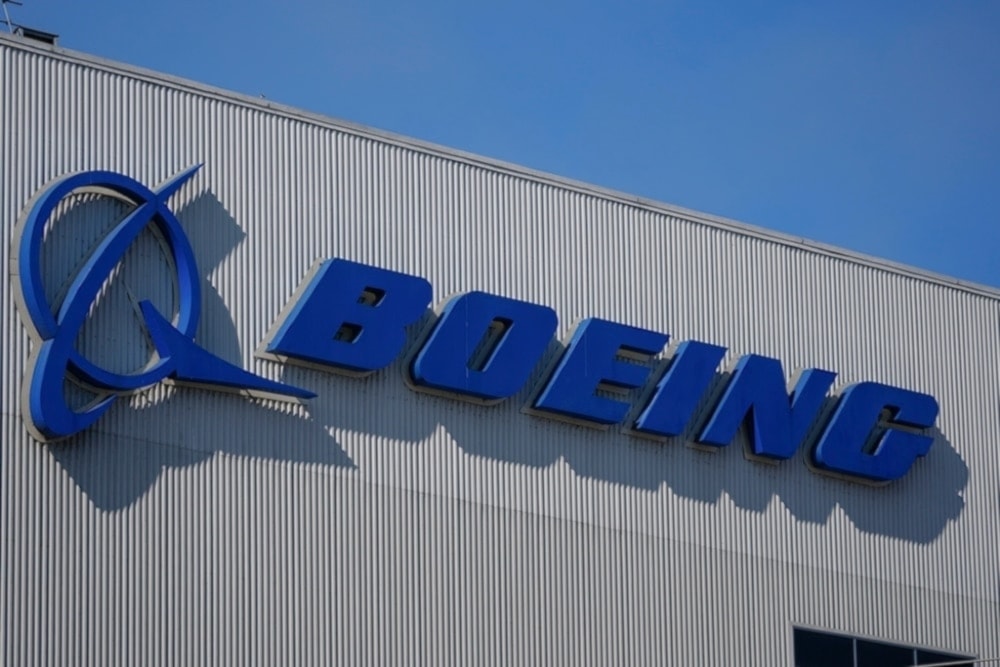Boeing Union approves new contract, concluding 7-week strike
The new contract includes a 38% wage increase, a $12,000 signing bonus, and provisions to boost employer contributions to a 401(k) retirement plan while controlling health care costs.
-

The Boeing logo is displayed at the company's factory on Sept. 24, 2024, in Renton, Washington. (AP)
Striking workers at Boeing approved a new contract proposal on Monday, effectively ending a stoppage that lasted more than seven weeks and cost the aviation giant billions of dollars.
The International Association of Machinists and Aerospace Workers (IAM) District 751 announced that members ratified the offer with a 59% vote, following the rejection of two previous proposals.
This decision will allow around 33,000 employees in the Seattle area to return to work and resume operations at two major assembly plants, as Boeing aims to recover from various setbacks.
The new contract includes a 38% wage increase, a $12,000 signing bonus, and provisions to boost employer contributions to a 401(k) retirement plan while controlling health care costs. However, it does not reinstate Boeing's former pension plan, which older workers had sought.
Jon Holden, the head of the Seattle union, characterized the agreement as a victory for workers who were determined to compensate for over a decade of stagnant wages from prior negotiations that had frustrated many rank-and-file members.
“The strike will end, and now it’s our job to get back to work and start building the airplanes, increase the rates, and bring this company back to financial success,” Holden stated at a news conference.
He described the contract as "rebalancing the scales in favor of the middle class" after earlier concessions made to the company, according to an IAM press release.
Boeing CEO Kelly Ortberg welcomed the ratification, emphasizing that management and workers must collaborate as "part of the same team." He noted, "We will only move forward by listening and working together. There is much work ahead to return to the excellence that made Boeing an iconic company."
The news was reportedly received by US President Joe Biden, who congratulated the union for the wage increase and provisions that "improves workers' ability to retire with dignity," according to a statement from the White House.
“Good contracts benefit workers, businesses, and consumers—and are key to growing the American economy from the middle out and the bottom up," Biden said.
Boeing employees can return to work as early as November 6, with a deadline to be back on the job by November 12, the IAM announced on the social media platform X.
Why it matters
The strike worsened Boeing's already precarious situation following a January incident in which a fuselage panel blew out mid-flight on a 737 MAX operated by Alaska Airlines. While there were no serious injuries, the event pushed Boeing back into crisis mode after two previous fatal MAX crashes led US air safety regulators to limit production until the company addressed its issues.
In March, Boeing announced a management overhaul that resulted in the departure of CEO Dave Calhoun, who was succeeded in August by former Rockwell Collins chief Kelly Ortberg.
Ortberg has warned that turning around Boeing will take time due to ongoing challenges, including significant cost management issues in defense contracts and problematic space missions.
In October, as Boeing reported an enormous quarterly loss of $6.2 billion, Ortberg highlighted the necessity for a "fundamental culture change" at the company and mentioned that he was reviewing Boeing's portfolio to potentially downsize its mission in order to restore excellence.
However, the IAM strike posed a threat to the turnaround efforts under the new CEO. Jo-Ellen Pozner, an associate professor at Santa Clara University's business school, cautioned before the vote that another rejection by IAM workers could have led the company into a deeper crisis. With the contract now ratified, she stated, "there is a way forward."
The IAM strike stemmed from worker frustration over more than a decade of nearly stagnant wages—a situation worsened by rising inflation and the increasing cost of living in the Seattle area, which is becoming a growing tech hub.
It is worth noting that the strike has now surpassed the 2023 United Auto Workers strike against Detroit automakers to become the costliest in the 21st century, with the Anderson Economic Group estimating the total economic impact at $11.6 billion.
Read next: Boeing needs to make 'significant changes':US Aviation chief

 4 Min Read
4 Min Read








